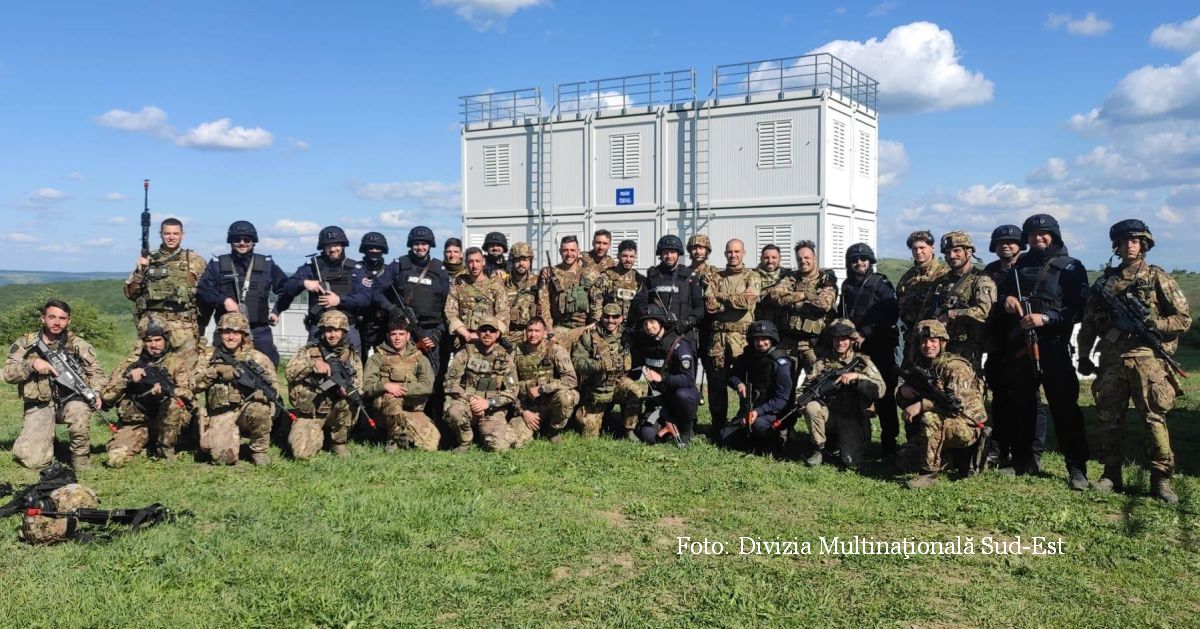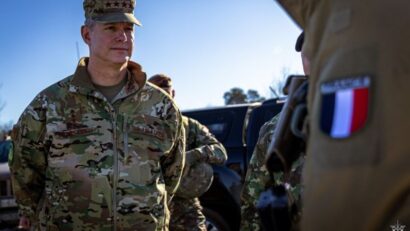Romanian, Italian and Bulgarian soldiers on a joint mission in Cincu
The exercise in Cincu highlights the importance of collaboration and effective communication between allied armies

Agenția Media a Armatei, 21.05.2025, 14:00
The Cincu training center (central Romania) is currently hosting the Scorpions Legacy 2025 multinational exercise, conducted under the aegis of Dacian Spring and coordinated by the Multinational Division Southeast Command. The exercise started with a “tactical situation resolution” scenario, and in the second week it moved to “field training exercise” sessions. These focused on developing leadership, planning and coordination skills of troops in the field, simulating real-life combat situations.
Romanian soldiers part of the South-East Multinational Brigade trained alongside peers from the Italian and Bulgarian armies. The joint exercise involved exchanging procedures, adapting to differences in equipment and communication systems, and developing a common operational language, in line with NATO standards.
Captain Marzia Maccaroni, the co-commander of a squadron from the 3rd Savoia Cavalleria Regiment in Tuscany, told us about his experience in Romania:
“Everything is going very well. We are learning a lot from Romanian and NATO procedures. It is an important opportunity for us to learn how to cooperate, to become stronger, both as an army and as a unit. It is a useful experience, essential, in fact, to learn how to work together. Even if the procedures are similar, it is not always easy to carry out the exercises together”.
Captain Maccaroni also shared some thoughts about his professional path:
“I chose military school at the age of 16. I decided early on that I wanted to become an officer. I really like this job and I am passionate about the division I am part of, the cavalry. I am happy with the choice I made and I enjoy being the commander of these people”.
One of the participants in the joint exercise is private Giovanni Maniscalco, an Italian serviceman from the same 3rd Savoia Cavalleria Regiment, for whom the exercise at Cincu was his first time in Romania.
“A soldier must be resilient and flexible, able to adapt to any challenge. I wanted to be part of the Italian Army – my father is also a soldier, so, in a way, I followed in his footsteps. This is the first time I am here for professional purposes, but I really like this training center”.
In the following period, soldiers will move on to a new phase of the exercise, which involves firing live ammo with combat weapons. Participants say that such collaborations provide a clear perspective on the strengths of each army and foster the exchange of best practices.
Captain Marzia Maccaroni gave us a clear perspective on these assets and how the interaction between contingents makes a difference in the exercise:
“Our Romanian colleagues can teach us to be more flexible. We tend to be strict in applying procedures. The Romanians manage to adapt plans according to the situation, which is an extremely valuable asset. As for the Bulgarians, they seem very strong, including the way they present themselves. And we have something to learn from them. Many say that the Italians have a great capacity to find solutions in any situation. At the end of the exercise, we will have a briefing with the battalion commander and the platoon leader, to analyze how we can improve certain skills and procedures.”
Captain Maccaroni’s words reflect a central idea: the importance of collaboration and effective communication between allied armies. The 2025 Dacian Spring exercise proves that, beyond technology and strategy, the true strength of a military alliance lies in the ability of people to work together, at the same pace and with the same purpose. (VP)






























